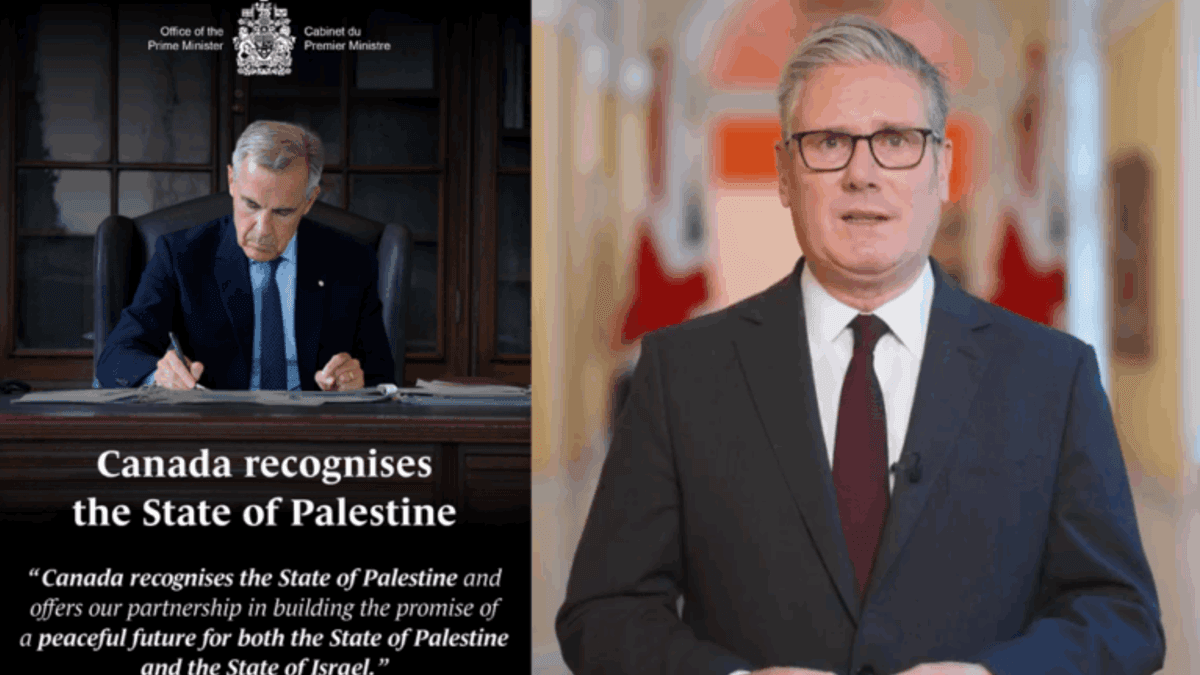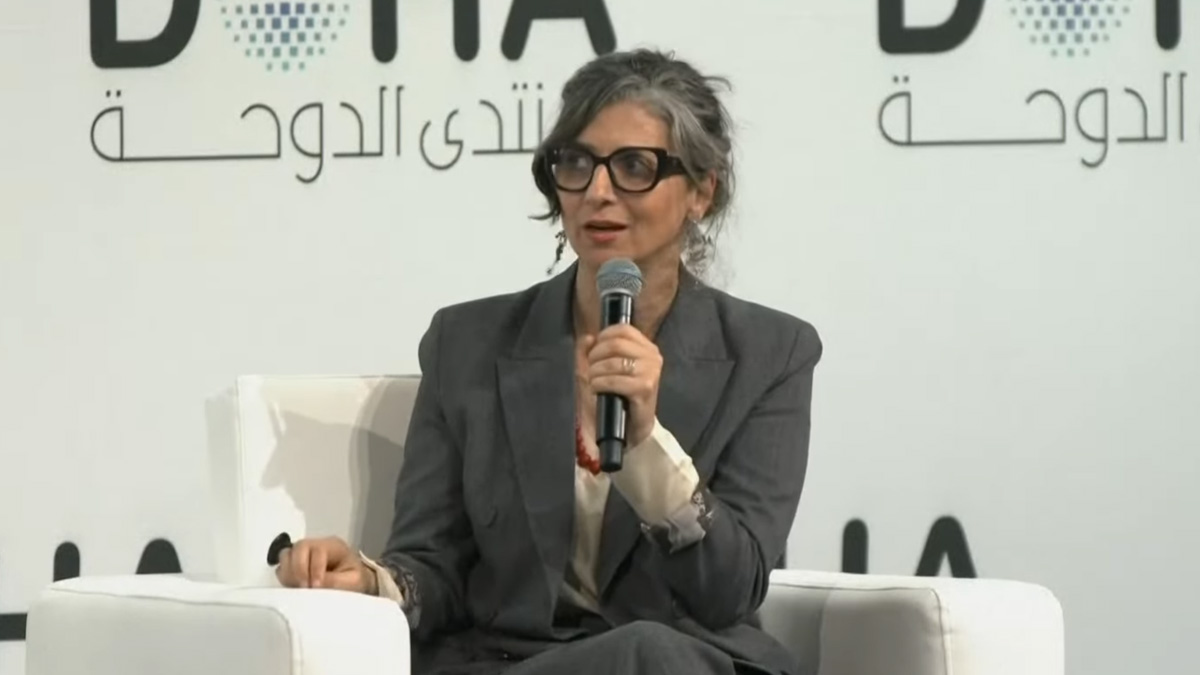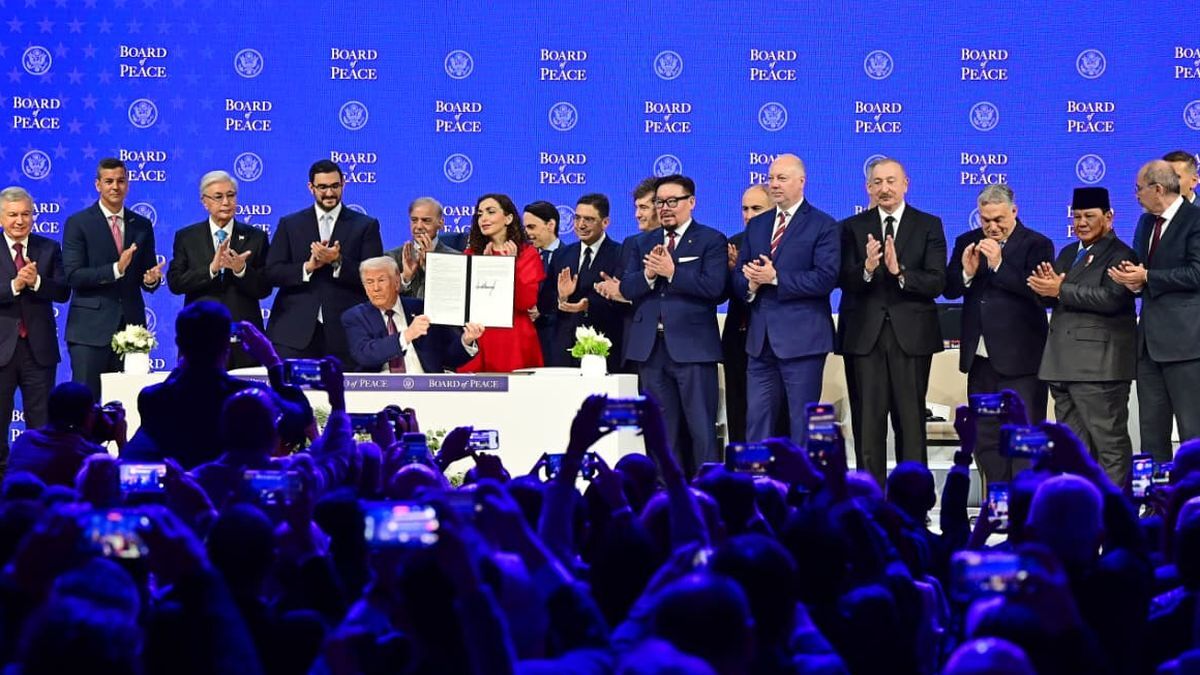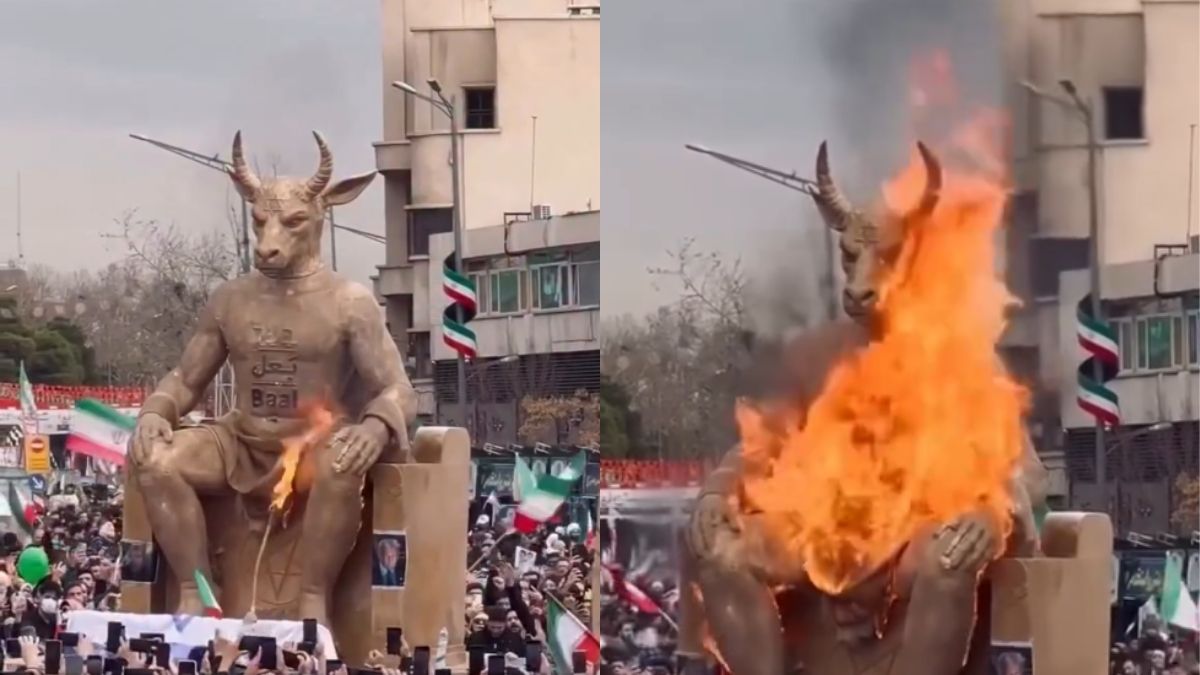Canada, UK and Australia formally recognise the State of Palestine in coordinated policy shift
In a historic diplomatic move, Canada, the United Kingdom and Australia have formally recognised the State of Palestine, marking a rare joint initiative among Western allies to revive the two-state solution amid the deepening Gaza crisis.

- Canada, UK and Australia recognise the State of Palestine in a coordinated announcement on 21 September 2025.
- Recognition framed as support for peace, reform and humanitarian relief — not a reward for Hamas.
- Israel condemns the move, calling it a dangerous precedent that rewards terrorism.
Canada, the United Kingdom and Australia have formally recognised the State of Palestine in a coordinated policy shift aimed at reviving the long-stalled two-state solution and restoring international momentum toward peace between Israelis and Palestinians.
The announcements came in rapid succession on 21 September 2025, with all three governments citing the deteriorating humanitarian situation in Gaza, growing restrictions on Palestinian sovereignty and the international community’s eroding influence over the peace process as reasons for their joint decision.
Canada becomes first G7 state to recognise Palestine
Canadian Prime Minister Mark Carney led the sequence, declaring: “Canada recognises the State of Palestine and offers our partnership in building the promise of a peaceful future for both the State of Palestine and the State of Israel.”
Carney criticised both Hamas and Israel’s current government for obstructing peace efforts, citing Hamas’s continued rejection of Israel’s right to exist and Israel’s settlement expansion in the occupied territories.
“The current Israeli government is working methodically to prevent the prospect of a Palestinian state from ever being established,” Carney said. He accused Israel of contributing to a “devastating and preventable famine” in Gaza.
He emphasised, however, that Canada’s recognition “in no way legitimises terrorism” and that its security support for Israel remains firm.
According to Carney, the Palestinian Authority has committed to democratic reform, pledging to hold general elections in 2026 and exclude Hamas from governance and security roles.
Australia affirms coordinated effort with allies
Australia followed soon after with a joint statement by Prime Minister Anthony Albanese and Foreign Minister Penny Wong, confirming recognition of Palestine as part of “a coordinated international effort” alongside Canada and the UK.
The statement described the move as consistent with Australia’s “longstanding commitment to a two-state solution,” and linked recognition to the urgent need for a ceasefire in Gaza and the release of hostages.
Albanese’s government said it had received assurances from the Palestinian Authority reaffirming Israel’s right to exist and committing to democratic elections, governance reform and the exclusion of Hamas.
“Hamas must have no role in Palestine,” the joint statement said. It added that international partners are working on a roadmap to rebuild Gaza and establish conditions for peace and mutual security.
The statement also noted that discussions on formal diplomatic relations and embassy openings would proceed as the Palestinian Authority fulfils its commitments to reform.
UK joins recognition, urges hostages’ release and ceasefire
Within hours, UK Prime Minister Keir Starmer announced that the United Kingdom was also formally recognising the State of Palestine.
“Today, to revive the hope of peace and a two-state solution, I state clearly — as Prime Minister of this great country — that the United Kingdom formally recognises the State of Palestine,” Starmer declared in London.
He condemned the “manmade crisis” in Gaza, referring to the deaths of tens of thousands of Palestinians and Israel’s ongoing restrictions on humanitarian aid.
“We call on the Israeli government to stop these cruel tactics and let the aid surge in,” he said, while also demanding the immediate release of hostages held by Hamas.
Starmer stressed that the recognition is “not a reward for Hamas” but a step toward enabling a viable Palestinian state living alongside a secure Israel. He noted that over 150 countries worldwide have now recognised Palestine.
Israel condemns recognition as reward for terror
Israel reacted strongly to the coordinated announcements. The Israeli Foreign Ministry issued a statement accusing Canada, the UK and Australia of “emboldening Hamas” and undermining Israel’s security.
“This recognition is nothing but a reward for jihadist Hamas,” the statement said, claiming that Hamas leaders had portrayed the move as a political victory stemming from the October 7, 2023, attacks.
Israel also rejected a recent United Nations commission report suggesting that its military actions in Gaza may meet the legal threshold for genocide. The Israeli government called the findings “false and politically motivated.”
According to Gaza’s Health Ministry, at least 65,283 Palestinians have been killed since the start of Israel’s military campaign in October 2023. Israel maintains that its operations target Hamas and other armed groups responsible for the October 7 attacks, which killed approximately 1,200 Israelis and led to the capture of more than 200 hostages.
New momentum for the two-state solution
The joint recognition marks one of the most consequential shifts in Western diplomacy on the Israeli-Palestinian conflict in decades.
While largely symbolic for now, the move signals growing frustration among Western allies over the continued stalemate in peace talks, the humanitarian toll in Gaza and what they describe as the Israeli government’s unwillingness to engage in meaningful negotiations.
Diplomatic observers say the coordinated step by three influential democracies could reignite discussions within the European Union and the G7 about taking a unified stance on Palestinian statehood.
The three governments framed their decisions as support for Palestinian self-determination and a rejection of both Hamas’s extremism and Israel’s expansionist policies.
Regional analysts note that the recognition also aligns with shifting global sentiment, as public and parliamentary pressure mounts in Western nations to adopt a more balanced approach to the conflict.
As of September 2025, more than 150 countries have recognised the State of Palestine, including most of Asia, Africa, the Middle East and Latin America.
Whether this coordinated recognition translates into renewed peace negotiations remains uncertain. But for the first time in years, the two-state solution — once considered a fading ideal — has re-entered mainstream Western diplomacy as a viable political objective.







